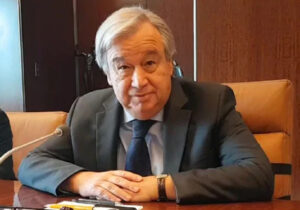The EU’s chief Brexit negotiator Michel Barnier says “decisive” progress has been made in reaching a final agreement on the UK’s departure from the bloc.
Mr Barnier said a 585-page draft withdrawal agreement published on Wednesday represented a “crucial step in concluding these negotiations”.
He also said provisions were included to avoid a hard border with Ireland.
His comments came after UK Prime Minister Theresa May said her cabinet had backed the draft agreement.
While the British decision represents a “crucial step” towards the country’s orderly withdrawal from the EU, the leaders of the other 27 EU nations still need to decide whether to approve the deal.
Meanwhile, Mrs May faces a battle to get the completed deal through the UK Parliament, despite winning the backing of her cabinet.
The draft withdrawal agreement covers so-called “divorce” issues as the UK prepares to leave the EU in March 2019. It includes a “financial settlement” from the UK, thought to be about £39bn (€45bn; $50bn).
Speaking at a press briefing in Brussels, Mr Barnier addressed one of the major concerns of the divorce, the Irish “hard border” issue.
He said that to avoid the need for physical checks on goods or infrastructure at the border between Northern Ireland and the Republic of Ireland, the EU would work with the UK to agree a trade deal. However if talks fail, the so-called “backstop” measure would be used.
Both sides have resolved to ensure the backstop is not necessary by coming up with alternative arrangements.
“If we are not ready by 2020, we can extend the provision so we have more time, and if we are still not there with the future agreement after this, the backstop agreement would kick in,” he said.
“There will be a UK-wide single customs territory which Northern Ireland will remain in, and Northern Ireland will remain aligned to the rules of a single market essential for avoiding a border including on agriculture policy.”
The draft withdrawal agreement states that a transition period to help smooth the path to the UK and EU’s future permanent relationship, which was previously set at 21 months, may be extended by mutual consent.
Mr Barnier said that any extension would by a one-off, “by a limited period and by joint agreement”.
He said the draft deal delivers “legal certainty” on the consequences of the UK’s divorce from the European Union.
There are also special protocols in place for Gibraltar and Cyprus to enable people there “to continue to live as they do today”, he added.
Mr Barnier made the point that while this agreement represented progress, there was “still work to be done”.
The European Parliament’s Brexit chief Guy Verhofstadt welcomed the news, saying that the agreement will provide “protection of citizens rights and the avoidance of a hard Irish border”.
“While I hope one day the UK will return, in the meantime this agreement will make Brexit possible, while maintaining a close relationship,” Mr Verhofstadt said in a statement.
European Commission President Jean-Claude Juncker tweeted to say he had recommended a summit take place with the EU and the UK following Mrs May’s announcement that her cabinet had backed the deal.
Finland’s Prime Minister Juha Sipila tweeted to say that while Wednesday’s developments were important, “decisions on both sides are still needed for a final agreement”.
Austrian Chancellor Sebastian Kurz said he was “very pleased”, adding: “The result is a good one.”
Donald Tusk, the president of the EU Council and the man who will decide when to hold a summit to sign the Brexit agreement, is due to address reporters alongside Mr Barnier on Thursday morning, his office said. -BBC




